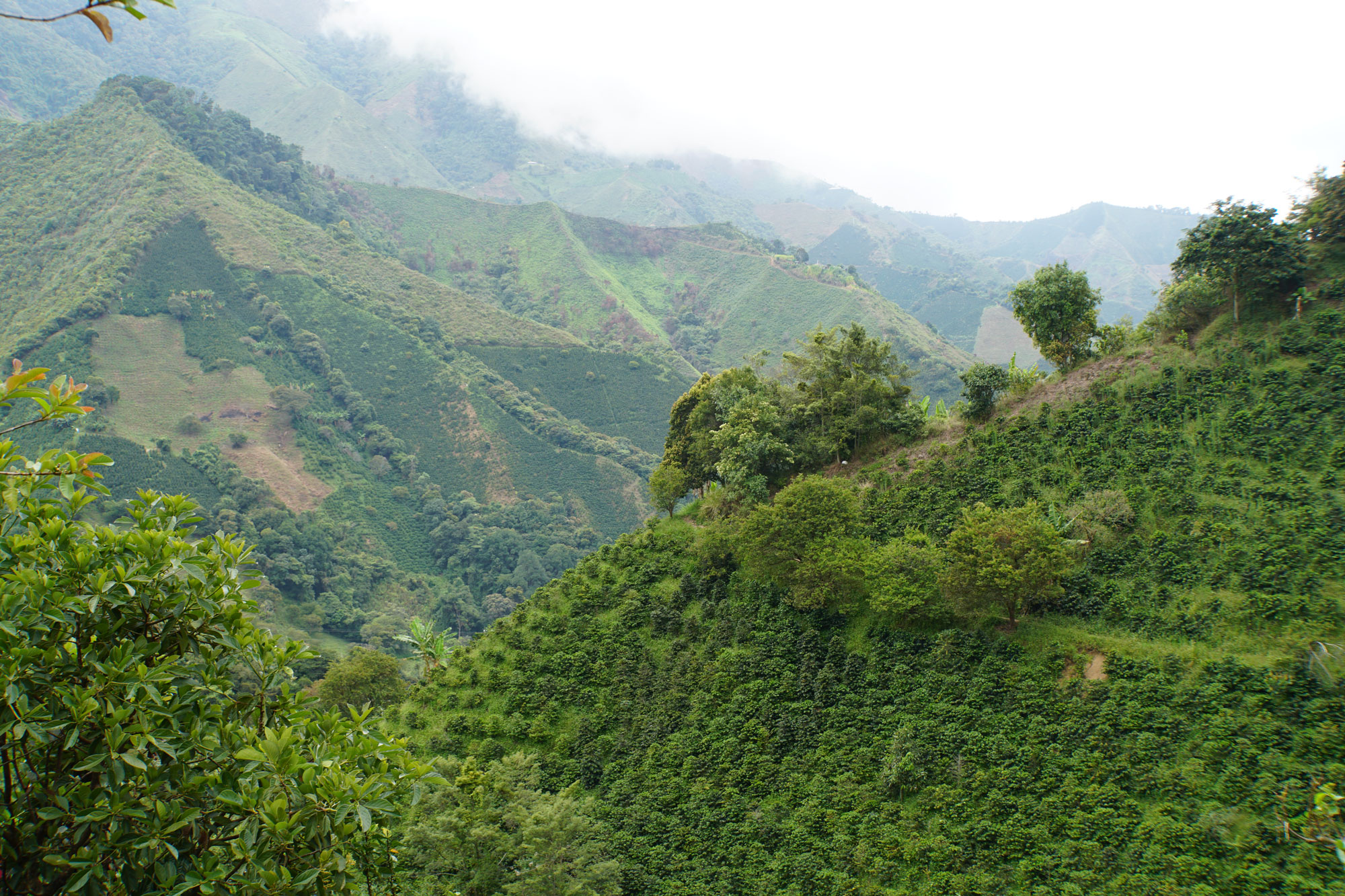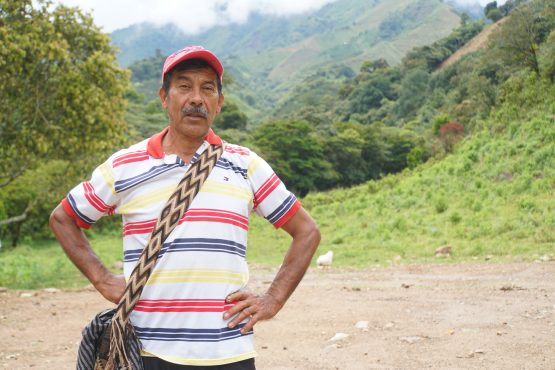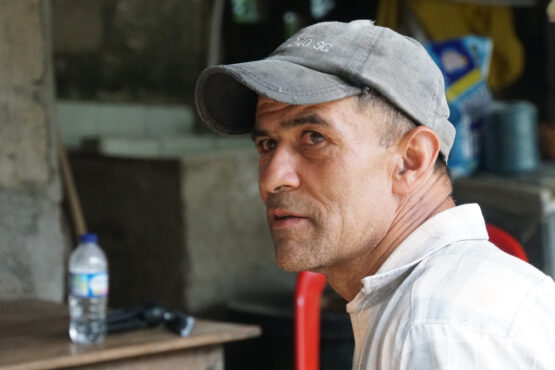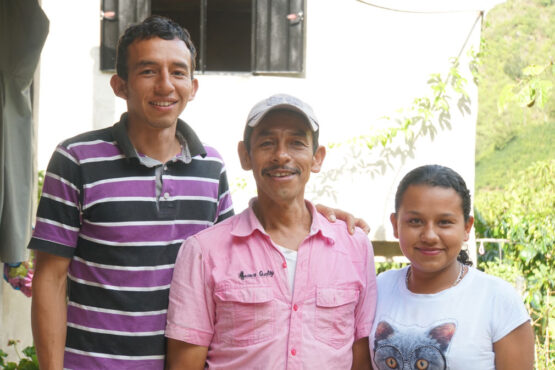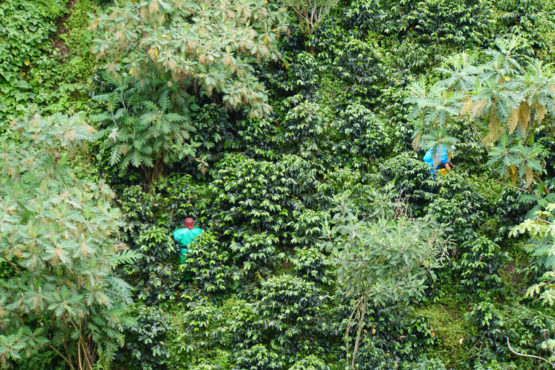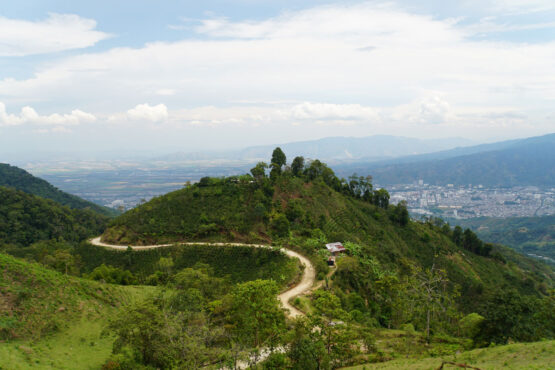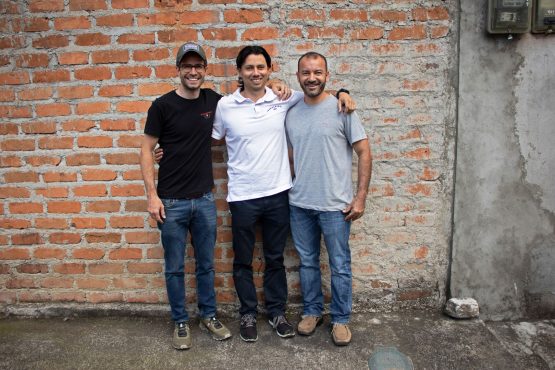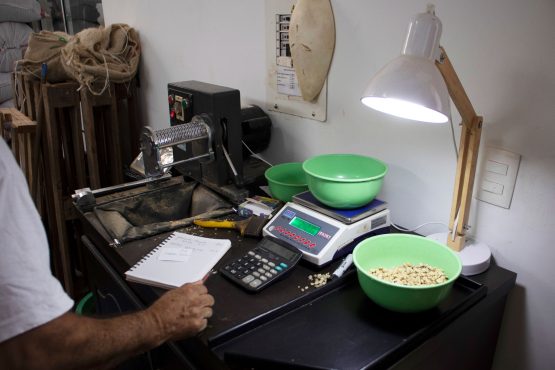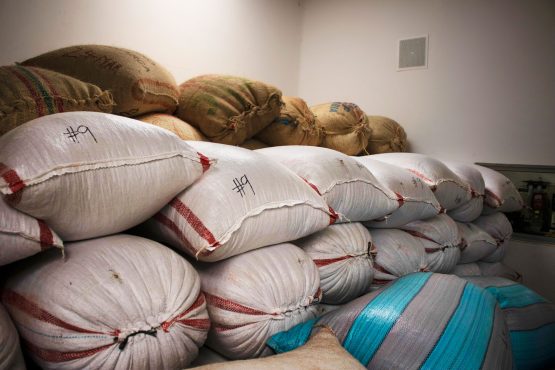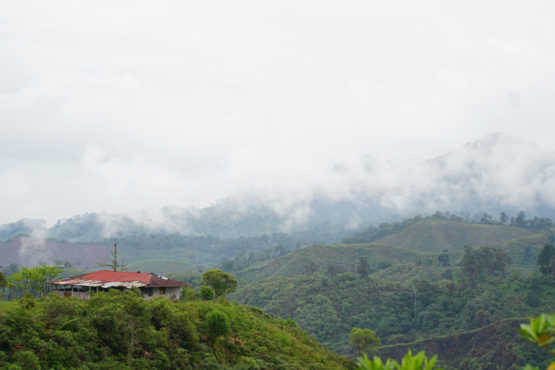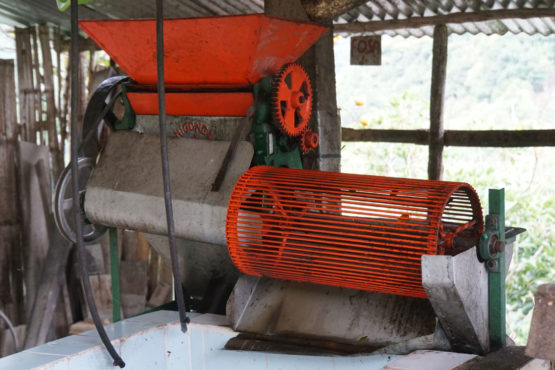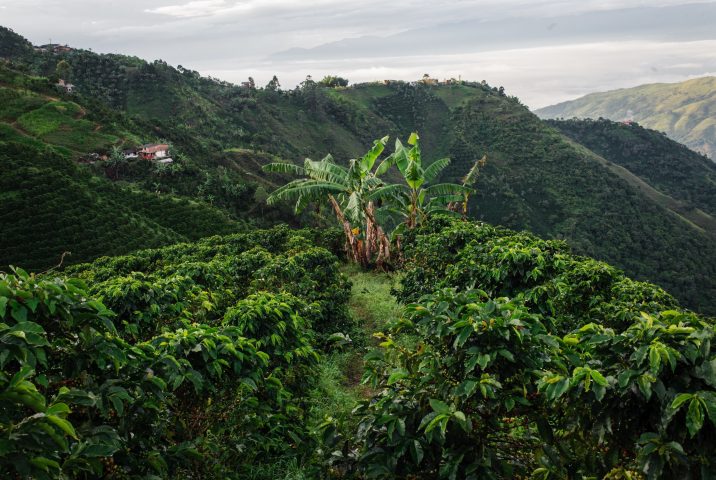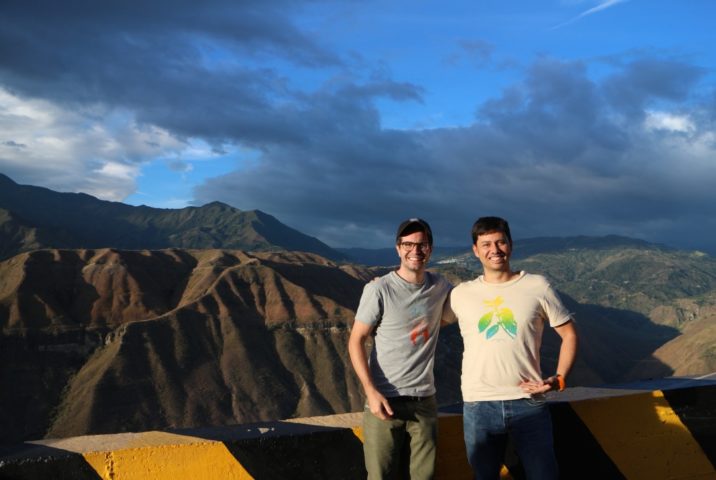Small Producers of China Alta
Crisp, cola-like acidity, balanced by cherry jam, milk chocolate and crème caramel. Great structure and balance.
This coffee was grown and processed by seven smallholder producers that are situated around the village of China Alta, a small community located in the municipality of Ibagué, in the state of Tolima, Colombia.
The farms that contributed to this lot are very small – on average just 3 hectares in size – and are located between 1800-2000m above sea level, in the steep, rugged hills that surround Tolima’s capital city, Ibagué. The region of China Alta is named for the Rio La China, a small and beautiful river that curvese through the mountains and eventually feeds into Rio Magdelena, Colombia’s principal river. Coffee farms sit alongside Rio La China, and the water is used to irrigate and process the coffee. Alta refers to the higher elevation areas of this area, where the sweetest and most refined coffees are grown and harvested.
Historically the area of China Alta has been known for cattle, sugarcane and trout, which are still farmed in pools along the river. Coffee is a relatively new crop for the region, having only been planted in the last 30-40 years. Most coffee farmers purchased land in the area because it was more affordable than traditional coffee farming areas like Planadas and Chaparral, in Tolima’s south. Higher elevation areas were considered less prosperous than lower areas because they typically achieve lower yields. However, this region has since gained acclaim for the high cup quality, sweetness and complexity of the coffees produced here.
Most farms in the region are planted with Caturra, which was the most popular variety during the 1970s and 1980s when the farms were established. Coffee in China Alta is farmed with traditional techniques. Fertilisation occurs around three times a year, usually after manual weeding, and pesticides are rarely used. The coffee is selectively hand-harvested, with most labour being provided by the farmers and their families.
The region surrounding China Alta is the traditional home of the Pijao people, a loose federation of indigenous communities who share a similar language and culture. Beyond Tolima, the Pijao territory once spread all the way to the departments of Huila in the south and Quindio in the west. The Pijao an extensive realm of influence and their cultural heritage is still evident every June 21st, when various small towns and communities across Colombia gather on the streets to celebrate the ‘Pijao New Year.’
ABOUT TOLIMA
The word ‘Tolima’ comes from the local indigenous language and means a “river of snow or cloud”. The region sits on the Cordillera Central, in the middle of the three mountain ranges that provide a range of microclimates well-suited to high-quality coffee production. Coffee is the leading agricultural activity in the region, followed by beans and cattle.
The best known regions in Tolima for specialty coffee are Planadas and Chaparral in the south. This coffee comes from the areas surrounding Ibagué, which is further north in the state. The city is also known as the “Ciudad del Abanico” or the “city of the folding fan” because when you look at it from the sky the rivers running from the mountains split up the crops of rice and cotton, and it looks like a beautiful handmade folding fan.
Central Ibagué serves as the capital of Tolima, and it is the political, commercial and cultural epicentre for the state. Because the city is easily accessible and well-connected, Pergamino have established a warehouse and collection point, managed by longtime employee Gonzalo Pérez. The facilities include a physical assessment lab, where green parchment is assessed and quality is recorded, a cupping space, and ample storage. Here, local farmers deliver small lots (around 100-150kg) of dried parchment every two to three weeks during the harvest. Upon delivery, a sample of the dried parchment is milled and assessed for physical attributes, including uniformity of size, presence of defects, moisture content and seed to hull ratio. If the coffee passes the physical assessment, it is accepted and the farmer receives their first payment for the coffee, calculated by the weight delivered and a base rate that includes a premium on top of the current local market rate.
The coffee is then sample milled, roasted and assessed for quality by Gonzalo and his crew of trained cuppers, and sent weekly to Pergamino’s QC lab in Medellín for further assessment by their expert team. There, each lot is carefully evaluated and, depending on the cup score and profile, sorted into different grades of quality and combined into larger volumes or kept separate as a single estate lot. Feedback on each lot is relayed back to the producer and after it has sold, a second payment is made to them according to the premium the coffee attracted.
The team at Pergamino cups through hundreds of small lots at their QC lab in Medellin, to select the coffees that are blended together into this special regional lot. The coffees included were chosen for their outstanding cup profile and distinct regional characteristics.
Coffee from Tolima has historically been very difficult to access due to the region’s isolation and instability. For many years this part of Colombia was under the control of Colombia’s notorious rebel group, the FARC, and as a result, it was unsafe and violent. Since 2012, safe access to this region has been possible as a result of peace talks between the Colombian government and the rebels. Since this time some stunning coffees from small producers have become accessible to the international market. Our export partners for this coffee, Pergamino, have worked hard commercialise specialty-grade coffee throughout Tolima, and are now able to source some outstanding coffees from very dedicated producers. Head here to learn more about the work of Pergamino.
HOW THIS COFFEE WAS PROCESSED
The coffees in this lot were selectively hand-harvested, with most labour being provided by the farmers and their families. They were processed using the washed method at each farm’s ‘micro-beneficio’ (mill).
The coffee was pulped using a small manual or electric pulper and then placed into a fermentation tank, where it was fermented for around 48 hours (depending on the weather and the farm’s location) and then washed using clean water from nearby rivers and streams.
It was then carefully dried (over 10–18 days) on parabolic beds, which are constructed a bit like a ‘hoop house’ greenhouse, and act to protect the coffee from the rain and prevent condensation dripping back onto the drying beans. The greenhouse is constructed out of plastic sheets and have adjustable walls to help with airflow, and temperature control to ensure the coffee can dry slowly and evenly.
Once dry, the coffee was delivered to Pergamino’s warehouse, where it was cupped and graded, and then rested in parchment until it was ready for export.
